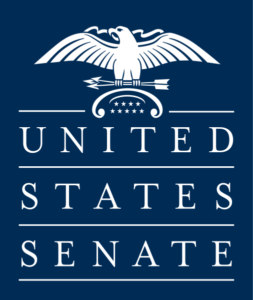By Bill Wilson –
Should the Senate just be a rubber stamp?
On January 25th, the Senate will be voting on a proposal to severely weaken the filibuster — the process whereby 41 Senators can block dangerous pieces of legislation and radical appointments from being voted on or even debated on the floor of the “most deliberative body”.
Now that Senate Republicans have 47 members in their conference, the ability for Senate Minority Leader Mitch McConnell to wield the filibuster as leverage has significantly increased. The effectiveness of the filibuster was on display when the then-41 member Senate Republican Conference blocked the $1 trillion omnibus spending bill in December.
Because Minority Leader McConnell kept the entire Senate Republican conference in line, Senate Majority Leader Harry Reid had to abandon his plans to have one last spending spree in 2010.
But now, Senate Democrats are intent on making sure that never happens again. New Mexico Senator Tom Udall is proposing a rules change that would eliminate holds on presidential appointments, including lifetime judicial nominations, and cloture votes on motions to proceed to debate on important pieces of legislation. Cloture votes require 3/5 majorities, or 60 votes to proceed.
Making matters worse, Senate Democrats want to weaken the filibuster with a simple majority vote, instead of the traditional two-thirds required to amend Senate rules. This is a transparent move to squash any dissent or opposition in the Senate.
This will allow the Senate majority under Reid to all but rubber stamp all of Barack Obama’s radical nominations to the federal bench and bureaucracy, and to bring any piece of legislation he wants to floor without having to consult with Senate Republicans.
Right now, the very threat of the filibuster can be utilized by Republicans to achieve concessions in exchange for allowing certain items to come to the floor. These will prove critically important as votes on a budget continuing resolution prior to March 4th, and on raising the national debt ceiling prior to March 31st come up this year.
Republicans have said they want such proposals to be accompanied by significant spending cuts, but that will be harder to achieve if Reid can bring them to the floor and use his majority to defeat any Republican amendments. Whereas now Republicans have a seat at the table in terms of what even comes to the floor. This is a critical distinction.
Even more dangerous is Udall’s proposal to make it impossible to block federal nominees to the judiciary and executive branch. Senate Republicans successfully blocked several radical appointments in the last session: Robert Chatigny and Goodwin Liu to the judiciary, Errol Southers to the Transportation Security Administration, and Dawn Johnsen to the Office of Legal Counsel. Since Senate Republicans placed holds on these nominations, Senate Democrats needed a full 60 votes to proceed, a hurdle they could not achieve even with their then-59 seat majority.
It is imperative that the Senate not become a rubber stamp for the Obama Administration’s radicalism. The rights of the legislative minority need to be protected.
In 2011, to live up to their campaign promises, Senate Republicans will need to use the leverage they have. But that will only work if they have any leverage left to wield. Hopefully, cooler heads will prevail, and the Senate will keep its status as legislation’s cooling saucer.
As the Left cries crocodile tears over alleged hyperpartisanship, Senate Republicans need to make a very big deal about this very partisan power grab taking place under the guise of making the Senate more “efficient”. That is, if they want to have any influence at all in the 112th Congress.
Bill Wilson is the President of Americans for Limited Government.








